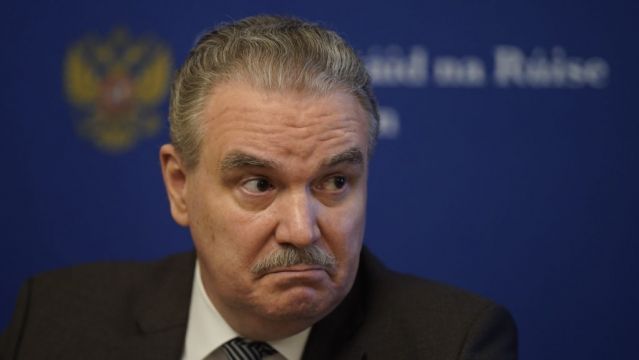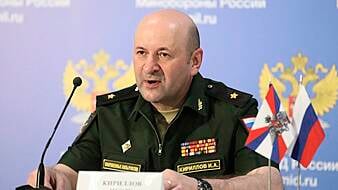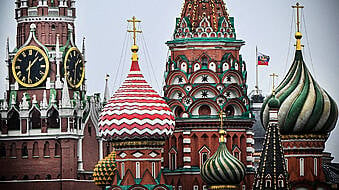Russian ambassador to Ireland, Yury Filatov, has been summoned by the Irish Government to a meeting over the escalating situation in Ukraine.
On Wednesday evening, Minister for Foreign Affairs Simon Coveney said that he had asked officials in his department to summon the Russian ambassador to “underline Ireland’s strong views on these issues”.
Simon Coveney told the Dáil that there was a “very real possibility” that Russian president Vladimir Putin was considering a full-scale invasion of Ukraine.
“Ireland has a deep understanding, which is informed by our own history, that it is dialogue and respect which resolves disputes. Not violence. This drives our solidarity with Ukraine this evening and in the weeks ahead.”
As reported in the Irish Examiner, Mr Coveney told the Dáil that the EU has responded swiftly to Monday’s moves by Russia.
Sanctions
A number of sanctions have been imposed on Russia by the EU in a bid to respond to the escalating crisis.
Mr Coveney said that EU sanctions will target 336 members of the Russian State Duma who voted for the violation of international law and of territorial integrity and sovereignty of Ukraine.
Furthermore, the sanctions will also target 26 decision-makers responsible for the threatening of Ukraine’s territorial integrity and individuals and entities financially or materially supporting them or benefiting from them.
Meanwhile, those operating in the defence sector who have played a role in destabilising actions have also been targeted, as well as those who wage a disinformation war.
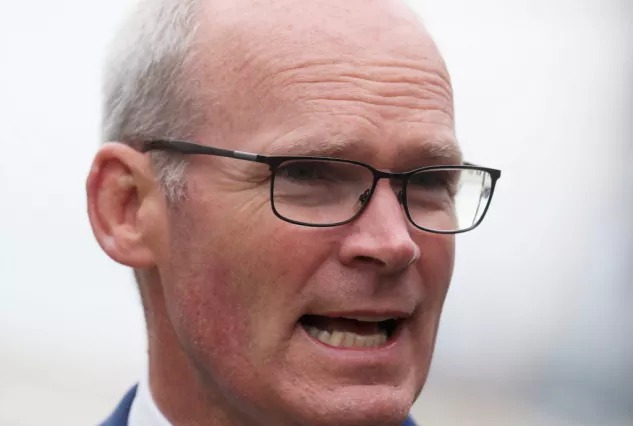
According to Mr Coveney, selected banks which are financing Russian decision-makers and other operations in those territories will also be impacted by sanctions.
Economic relations between the two breakaway regions and the EU will be targeted to ensure those responsible feel an economic impact for their actions, the Minister for Foreign Affairs explained.
The EU sanctions will target the ability of the Russian state and government to access the EU’s capital and financial markets and services in an effort to limit the financing of escalatory and aggressive policies, he said.
“The EU stands ready to adopt additional measures at a later stage if needed in the light of further developments. Ireland will work to ensure that all EU sanctions are implemented here including in respect of financial services and the IFSC,” Mr Coveney said.
'Unwavering support'
The Minister for Foreign Affairs also declared the State's unwavering support of Ukraine's sovereignty and territorial integrity.
"Ukraine’s borders today are what they were on Monday and what they were on its independence over 30 years ago in 1991," Mr Coveney said.
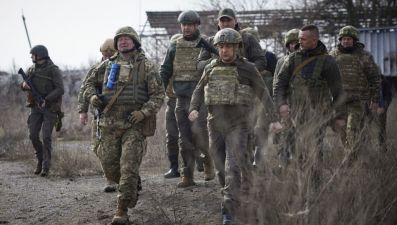
It is estimated that there are at least 110 Russian Battalion Tactical Groups and some 190,000 troops in place in and around Ukraine’s borders.
It comes despite the Russian government’s repeated assertion that it has no wish to invade Ukraine.
“We see clearly that the Russian government is clearly willing to use military aggression against Ukraine in order to get what it wants. At this crucial hour, it is important to speak plainly on this matter,” he added.
“It affects the whole of Europe. This is a challenge to the principles and agreements which have kept Europe, comparatively, very secure and peaceful in our lifetimes. We cannot take that security, that peace, for granted,” he added.
